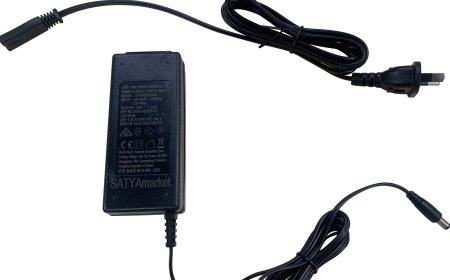Cash Flow Strategies Every Small Business Must Implement
Cash flow is the lifeblood of any business—especially small ones. Even if your company is profitable on paper, poor cash flow management can lead to missed opportunities.

Cash flow is the lifeblood of any businessespecially small ones. Even if your company is profitable on paper, poor cash flow management can lead to missed opportunities, late payments, and even business failure. In fact, according to studies, 82% of small businesses fail due to cash flow problems.
The good news? With the right strategies, small businesses can maintain a healthy cash flow and thriveeven in unpredictable markets.
In this article, well explore practical, proven cash flow strategies every small business must implement to stay financially strong and resilient.
1. Monitor Cash Flow Regularly
Why it matters: You can't manage what you dont measure.
Make it a habit to review your cash flow statement weekly or biweekly. This gives you real-time insight into:
-
How much cash is coming in and going out
-
Which areas are draining your cash
-
When shortfalls might occur
Tip: Use accounting tools like Febi.ai, fincent, or freshbooksthat offer automated cash flow dashboards.
2. Create a Cash Flow Forecast
Why it matters: Planning ahead prevents future financial surprises.
A cash flow forecast helps you anticipate income and expenses for the next 3 to 12 months. It lets you:
-
Plan for seasonal dips
-
Time big purchases wisely
-
Schedule payments when cash is available
Action Step: Base your forecast on past data, pipeline sales, and known expenses.
3. Speed Up Receivables
Why it matters: The longer customers take to pay, the tighter your cash becomes.
Strategies to speed up payments:
-
Send invoices immediately after delivery
-
Offer early payment discounts (e.g., 2% off for payment within 10 days)
-
Set up automatic reminders
-
Accept multiple payment methods (UPI, credit cards, bank transfer)
Pro Tip: Use invoicing tools with auto-reminder features to reduce manual follow-ups.
4. Delay Payables Strategically
Why it matters: Holding onto cash longer gives you breathing room.
Negotiate better payment terms with suppliers, such as:
-
Net 45 or Net 60 instead of Net 30
-
Installment-based payments for large orders
-
Early payment discounts (if you have excess cash)
Important: Dont delay payments at the cost of relationships or late penalties. Be strategic, not careless.
5. Maintain a Cash Reserve
Why it matters: Emergencies or slow months shouldn't paralyze your business.
Set aside a portion of your profits into a business emergency fund. Even 5-10% of your monthly earnings can add up over time.
Use your reserve for:
-
Sudden expenses
-
Cash flow gaps
-
Late client payments
6. Cut Unnecessary Expenses
Why it matters: Every rupee saved improves your cash position.
Audit your expenses quarterly. Look for:
-
Underused software subscriptions
-
Unproductive marketing spend
-
Energy or office overheads
-
Staff inefficiencies
Smart move: Shift to variable costs (freelancers, cloud tools) instead of fixed overheads when possible.
7. Improve Inventory Management
Why it matters: Overstocking ties up cash in unsold goods.
If you're in retail or manufacturing:
-
Use inventory management software to track turnover
-
Implement just-in-time inventory practices
-
Identify dead stock and run clearance offers
Goal: Keep stock levels optimizedenough to meet demand but not more.
8. Use Business Credit Wisely
Why it matters: Short-term credit can support cash flowbut only if used responsibly.
Use options like:
-
Business credit cards
-
Overdraft facilities
-
Line of credit from banks
Rule of thumb: Use credit for short-term needs, not to cover losses.
9. Lease Instead of Buy
Why it matters: Leasing reduces upfront costs.
For expensive equipment or office space, consider leasing instead of buying. It keeps more cash in hand for daily operations and reduces maintenance responsibilities.
10. Automate Financial Processes
Why it matters: Manual work slows cash inflow and increases errors.
Use cloud-based accounting tools that can:
-
Auto-send invoices
-
Track payments in real-time
-
Generate cash flow reports
-
Remind you of upcoming bills
Recommendation: Platforms like Febi.ai also use AI to predict future cash needs and offer actionable insights.
Conclusion: Cash Flow Is Survival
For small businesses, managing cash flow isnt just a financial taskits a survival skill.
By implementing these strategies, youll:
-
Reduce financial stress
-
Avoid last-minute borrowing
-
Build a stronger, more stable business
Remember, profits are importantbut cash is king. Make cash flow your top priority and set your business up for long-term growth and sustainability.



























